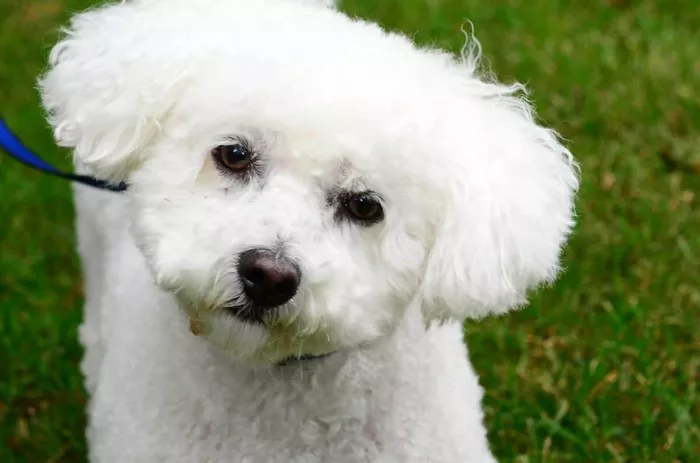Bichon Frises are a popular breed of small, fluffy dogs that are known for their affectionate and playful nature. They are often considered a great family pet due to their friendly disposition and adaptability to different living environments. However, one question that many prospective owners have is whether or not Bichon Frises are easy to train. In this article, we will explore the various factors that contribute to the trainability of Bichon Frises and provide tips on how to train them effectively.
The History of Bichon Frises:
Bichon Frises have a long and interesting history that can be traced back to the 14th century. These dogs were originally bred in the Mediterranean region, specifically in Italy and Spain. They were popular among the aristocracy and were often used as lap dogs and companions. In the 16th century, Bichon Frises were brought to France and became a favorite of French royalty. They were eventually bred with other small breeds, such as Poodles and Maltese, which gave them their distinctive appearance.
Personality Traits of Bichon Frises:
Bichon Frises are known for their friendly and outgoing personalities. They are affectionate dogs that thrive on human interaction and love to be around people. They are also very playful and enjoy playing games and engaging in other activities. However, Bichon Frises can also be stubborn at times, which can make training a bit of a challenge.
Factors That Affect Trainability:
There are several factors that can affect the trainability of Bichon Frises. One of the most important factors is their age. Like all dogs, Bichon Frises are more receptive to training when they are young. Puppies are generally easier to train than adult dogs, as they are more open to learning new things and are less set in their ways.
Another factor that can affect the trainability of Bichon Frises is their temperament. Some Bichon Frises are more laid-back and easy-going, while others are more high-strung and excitable. Dogs with a more laid-back temperament are generally easier to train, as they are more patient and less likely to become distracted.
The training method used can also affect the trainability of Bichon Frises. Positive reinforcement training, which involves rewarding good behavior with treats or praise, is generally more effective than punishment-based training. This is because dogs respond better to positive reinforcement and are more likely to repeat behaviors that are rewarded.
Tips for Training Bichon Frises:
If you are looking to train a Bichon Frise, there are several tips that can help make the process easier and more effective. First, it is important to start training as early as possible. Puppies are more receptive to training, and starting early can help establish good habits and behaviors.
It is also important to use positive reinforcement training methods. This means rewarding good behavior with treats, praise, or affection. Punishment-based training can be counterproductive and may lead to negative behaviors.
Consistency is also key when training Bichon Frises. Dogs thrive on routine and consistency, so it is important to establish a regular training schedule and stick to it. This can help reinforce good behaviors and make training more effective.
Finally, it is important to be patient when training Bichon Frises. These dogs can be stubborn at times, and it may take some time for them to learn new behaviors. However, with patience and consistency, Bichon Frises can be trained effectively and become well-behaved and obedient pets.
Conclusion:
Bichon Frises are a popular breed of small dogs that are known for their friendly and playful personalities. While they can be stubborn at times, Bichon Frises are generally easy to train with the right approach. By using positive reinforcement training methods, establishing a regular training schedule, and being patient and consistent, Bichon Frises can be trained effectively and become well-behaved and obedient pets.
FAQs
Why are bichons so hard to train?
Bichon Frise dogs can be challenging to train due to their independent nature and occasional stubbornness. They are intelligent dogs but may exhibit a strong-willed temperament, which can make training sessions challenging. Consistency, patience, and positive reinforcement techniques are essential when training a Bichon Frise to help overcome their stubborn streak and achieve successful results.
Do bichons bark a lot?
Bichon Frise dogs are known for their tendency to bark, especially when they are excited, bored, or seeking attention. While barking behavior can vary from dog to dog, Bichons may bark more than some other breeds. Proper training and socialization can help manage excessive barking in Bichons and teach them appropriate ways to communicate.
What are the cons with Bichon Frise?
While Bichon Frise dogs are beloved for their cheerful demeanor and affectionate nature, there are some potential drawbacks to consider. Bichons can be prone to separation anxiety if left alone for long periods, which may lead to excessive barking or destructive behaviors. Additionally, their fluffy white coats require regular grooming to prevent matting and maintain their appearance. Some Bichons may also be prone to health issues such as allergies, dental problems, or joint issues, requiring ongoing veterinary care.
Is a Bichon Frise a good first dog?
Bichon Frise dogs can make excellent first pets for novice dog owners due to their friendly, adaptable, and affectionate nature. They are typically good with children and other pets and are relatively low-maintenance in terms of exercise needs. However, potential Bichon owners should be prepared for regular grooming requirements and invest time and effort into training and socialization to ensure a well-behaved and well-adjusted companion.


